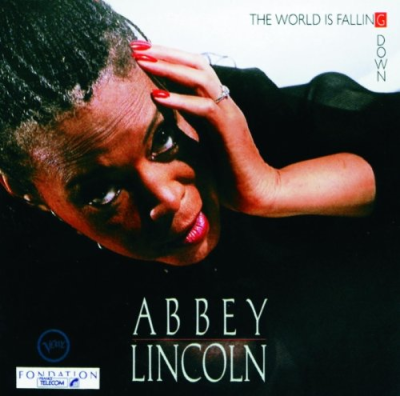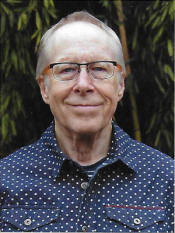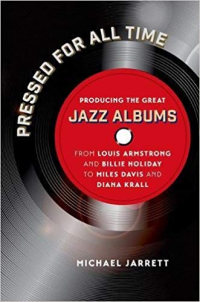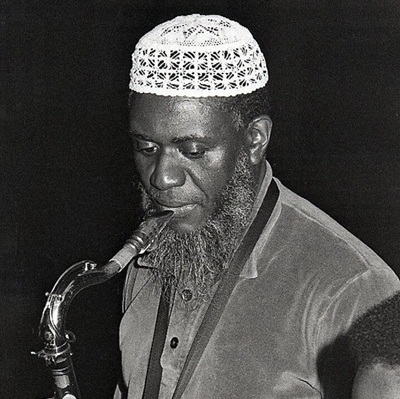..
.
Drawn from interviews with prominent producers, engineers, and record label executives, Michael Jarrett’s Pressed For All Time: Producing the Great Jazz Albums is filled with interesting stories behind some of jazz music’s most historic, influential, and popular recordings. In cooperation with Jarrett and University of North Carolina Press, Jerry Jazz Musician will occasionally publish a noteworthy excerpt from the book, which is now available in trade paperback.
.
In this edition, producer Jean-Phillippe Allard talks with Jarrett about working with the singer Abbey Lincoln on her 1990 Verve album The World is Falling Down
.
.

The World is Falling Down, by Abbey Lincoln
.
___
.
.
Jean-Phillipe Allard was general director of both Polydor Records and Universal Music Publishing in France, and as a jazz producer was responsible for recording some of the best jazz music since the late 1980s. In that time he worked with the likes of Stan Getz, Abbey Lincoln, Ornette Coleman, Charlie Haden/Pat Metheny, Randy Weston, Kenny Barron, Dee Dee Bridgewater, and John McLaughlin.
.
.
.
.
___
.
.
…..
…..In the late eighties, I ran Polygram in France. Because of CDs, it was a good time for jazz, and we started to do some production in France. One of my favorite artists, ever, was Abbey Lincoln. We’d had no news of her since Talking to the Sun (1984), her Enja album. My colleague, Daniel Richard, and I shared the same love for what she did. So I decided to call her, despite a lot of people telling me that she was a “difficult person.” They in fact warned me.
…..I phone her, and we got along right away. She always talked about this first call. We started to speak about what she wanted to do, what she had in mind. We talked about concepts and musicians. I said, “With whom would you like to work, if you could choose anybody?”
…..She said, “Alain Jean-Marie,” a French pianist.
…..I was very surprised and said, “Okay, great. I love Alain Jean-Marie. What about Charlie Haden?” They’d never worked together. I don’t think they really knew each other.
…..“Yeah, okay,” she said. “What about Billy Higgins?” Theh she talked about the songs, her new songs.
…..I’d found a song of Charlie Haden’s called “First Song.” I thought it would be great for her to write lyrics for it. She loved the song and wrote lyrics right away. When we thought we were ready, we booked a studio in New York. It was my first time to go to New York, and in a short time I was walking into the studio with an artist. It was a very difficult session, but Abbey and I always got along very well; so that part was easy. She was always creating, writing new songs.
…..Why was the recording not easy?
…..First reason, Jackie McLean didn’t show up. The week before the sessions, he said he was booked, couldn’t make it, and would have to record his parts later. I knew he really wanted to record. So we got Jerry Dodgion to do the alto parts which were, later, replaced by Jackie’s. It’s hard to handle that sort of situation. You can’t postpone the recording. Everything was planned. I came from France. It was complicated.
…..Then, the second reason was Abbey got really sick in the middle of the session – some kind of flu or something. She had a high fever. She was very weak and couldn’t sing. She was totally devastated by that. I remember her crying. We had to make the session work without her; then, when she could walk, we finished.
…..Also, she wanted Ron Carter to write the arrangements. I thought that was a little strange. He could do the job, obviously, but he’s more known as a bass player than an arranger. Plus, we already had Charlie. To have Charlie and Ron Carter in the same room was not great. We had some conflicts – some personality clashes – and had to handle that. For all those reasons, it wasn’t easy, but at the end everything was cool. Jacke came and did his parts. Abbey recovered, and everybody was really happy. I learned a lot from that session.
…..What was the setup in the studio?
…..We always worked with the band. They were isolated, but they were always in the studio. Sometimes, Abbey would change a word or correct a mistake – just little things. One time, she wanted to change a whole vocal part because she had another idea for how she wanted to interpret the song.
…..You’ve worked a lot with Jay Newland. What do you look for in an engineer?
…..He was on Abbey’s first [Verve] recording because he was the house engineer at BMG [RCA Studios]. I noticed that he was really into the music. David Baker was the main engineer. Jay is very quiet. We formed a relationship. After that, I worked with another engineer, but I wanted Jay to be the assistant. Then I started to notice that, for me, he was the best engineer for this kind of project.
…..When Jay is not the engineer, I’m always frustrated. He does exactly what I want to hear without talking a lot. He’s really quick. He’s one of the fastest engineers. With him, you never have a sound check. The musicians come, and when they’re ready, they can play.
…..When someone comes into the booth to listen to a take, it sounds good already. It’s not unbalanced. It’s inspiring. When I work with him it’s really easy to keep the energy going. We don’t waste time and energy making takes and takes because we don’t know if we have what we need. We always know sooner with Jay, because of his ability to do really great rough mixes.
…..Abbey liked him a lot, too, and felt confident with him. Jay never gives singers any attitude. “I am the engineer. You don’t know what you’re doing.”
.
___
.
.
Listen to Abbey Lincoln sing “First Song” from The World Is Falling Down .
.
.
.
_____
.
.
From Pressed for All Time: Producing the Great Jazz Albums from Louis Armstrong and Billie Holiday to Miles Davis and Diana Krall. Copyright © 2016 by Michael Jarrett. Published by the University of North Carolina Press. Used by permission of the publisher. www.uncpress.unc.edu
.
.
___
.
.
photo by Pamela Jarrett

Most of Michael Jarrett’s writing on jazz production appeared in Pulse!, Tower Records’ magazine. His day job, however, was professor of English at Penn State University (York Campus). In addition to .Pressed for All Time, his book about jazz record production, Jarrett wrote. Drifting on a Read: Jazz as a Model for Writing; .Sound Tracks: A Musical ABC; and .Producing Country: The Inside Story of the Great Recordings. He is now retired. He and his wife live in the village of Ojochal, on the southern Pacific coast of Costa Rica.
.
.
.
















































I really enjoyed reading this article as it gave me more insight into one of my most favorite vocalist. I really treasure the CDs I have of Abbey and kind of feel as if we grew up together. The first time I heard her was in the 60’s on the album with Max Roach with her ear-splitting scream – which I could feel right down to my toes! There are many wonderful jazz vocalists but none have moved me with as much depth of feeling as Abbey. Thank you for sharing this lovely memory.